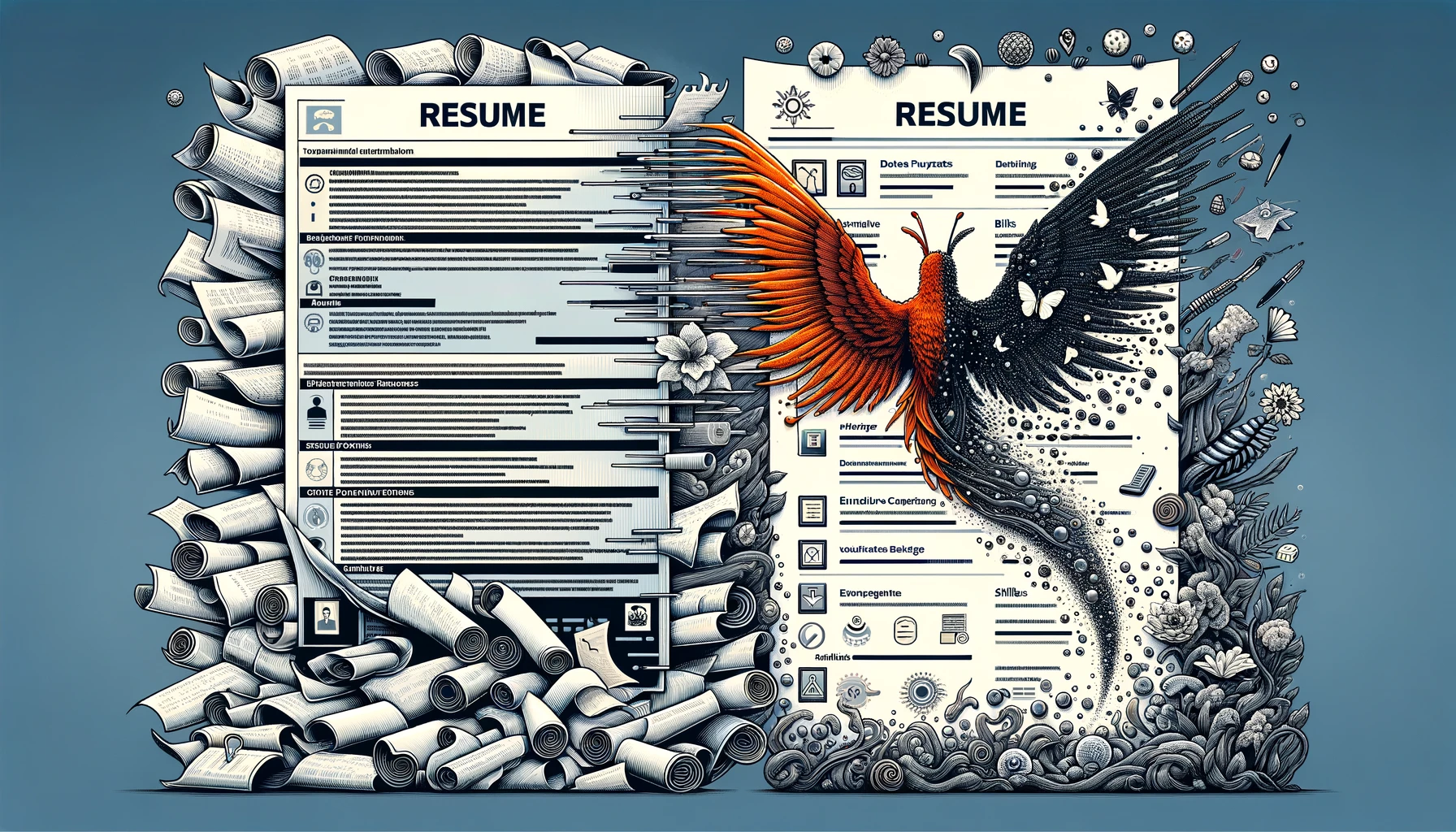In the intricate dance of resume writing, one age-old question continues to linger in the minds of job seekers: Should references be included within this crucial document?
The conventional wisdom often dictates listing references at the tail end of your meticulously crafted resume, like a finishing touch that signals readiness for scrutiny. Yet, beneath this seemingly straightforward practice lie layers of myths and misconceptions waiting to be unraveled.
Picture this: A hiring manager skims through your resume, eyes lingering on those familiar lines detailing past exploits and professional achievements. But as they reach the section reserved for references, do they pause with reverence or perhaps skepticism?
Debunking the myth that more is always better when it comes to attachments, we delve into whether these contact details truly hold sway in sealing the deal. Stay with us as we shatter preconceived notions about how references can shape your job application narrative – for better or for worse.
Pros and Cons Analysis
When it comes to including references on your resume, there are definite advantages to providing them upfront. One key benefit is the opportunity to showcase your credibility and competence immediately.
By offering references right from the start, you signal to potential employers that you have nothing to hide and that others vouch for your abilities. This can help build trust early in the hiring process and set a positive tone for further evaluations.
However, there are also potential drawbacks or risks associated with sharing references too early in the hiring process. One concern is that presenting references prematurely could overwhelm recruiters with information, distracting them from focusing on your qualifications and experiences.
Moreover, if not strategically chosen or properly prepared, references may not provide the strongest endorsement or align with what you want to highlight about yourself as a candidate. It’s crucial to strike a balance between showcasing support for your candidacy and ensuring that references enhance rather than detract from your application.
Best Practices for Handling References
Knowing when and how to share your references can make a significant impact on your job application process. While it’s common courtesy to have references ready upon request, consider the timing strategically.
Rather than overcrowding your resume with contact details of referees, save this information for later stages, especially if space is limited or you want to maintain a concise document. By doing so, you demonstrate preparedness without overwhelming potential employers with excess information upfront.
When selecting references, opt for individuals who can speak to various aspects of your professional abilities and character. Aim for a well-rounded group that includes former supervisors, colleagues from different projects or roles, and even clients or mentors who can attest to your skills and work ethic.
Having a diverse range of referees enables prospective employers to gain comprehensive insights into your capabilities from multiple perspectives. Additionally, take the time to brief each reference on the specific role you’re applying for; this ensures they highlight relevant experiences and qualities that align with the position requirements when contacted by the hiring team.
Prepare your references effectively by informing them about the job opportunities you’re pursuing in advance. Share key details such as the company name, position title, and any specific skills or achievements you’d like them to emphasize during their discussions with potential employers.
Equipping your referees with tailored information not only helps streamline communication but also showcases a proactive approach towards presenting yourself in the best light possible through credible endorsements.
Alternatives to Listing References
When it comes to demonstrating your credibility and character without directly listing references on your resume, there are several effective strategies you can utilize. One powerful approach is to incorporate testimonials or quotes from previous employers or colleagues.
By highlighting positive feedback or accomplishments in a succinct and impactful manner, you not only validate your skills but also provide real-life examples of your value as an employee.
Another creative way to showcase your professional reputation without traditional references is through the use of a Skills Validation section. Here, you can outline key skills relevant to the position you’re applying for and provide specific examples of how you’ve demonstrated these abilities in past roles.
This not only serves as evidence of your capabilities but also allows potential employers to see firsthand the value you could bring to their organization. Thinking outside the box when it comes to presenting your qualifications can set you apart from other candidates and leave a lasting impression on hiring managers.
Key Considerations for Including References on Your Resume
When deciding whether to include references on your resume, it’s crucial to assess the relevance and impact of these endorsements. While strong recommendations can add credibility to your application, they may also take up valuable space that could be better utilized for showcasing your skills and experience.
Moreover, consider the nature of the job you’re applying for – certain industries or roles may place greater emphasis on references than others. For instance, positions in academia or research often require detailed reference letters to validate one’s qualifications.
Furthermore, prospective employers have varying preferences when it comes to references. Some companies prefer to contact referees at later stages of the hiring process, while others request them upfront.
Understanding these preferences can help you tailor your resume strategy accordingly. Additionally, think about the quality of your references – are they individuals who can speak positively and knowledgeably about your work ethic and abilities?
Choosing the right people as references is just as important as including them on your resume. Ultimately, by weighing these factors thoughtfully and aligning them with your career goals, you’ll be able to make an informed decision regarding the inclusion of references in your job application materials.
Summary: In essence, whether or not to include references on a resume boils down to a strategic choice based on individual circumstances. By reflecting on the significance of references within your industry, considering employer expectations, and selecting appropriate referees wisely, you’ll be better equipped to craft a compelling resume tailored to each job opportunity.
Remember that while including strong endorsements can enhance your candidacy in some cases, focusing solely on relevant skills and achievements may sometimes have a more significant impact on securing interviews and advancing in the hiring process.





